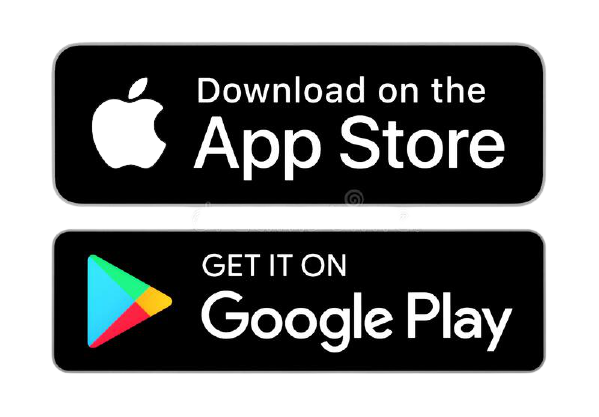Apple and Android: The Key Difference.
Only Apple make iPhone, whereas the Android operating system was developed by Google, who offers Android software to various phone makers such as Samsung, HTC and Motorola. As the only developer of iPhone, Apple has extremely tight control over the software and hardware of their iPhones, while Android phones vary in size, weight, features and quality.
Only Apple make iPhone, whereas the Android operating system was developed by Google, who offers Android software to various phone makers such as Samsung, HTC and Motorola. As the only developer of iPhone, Apple has extremely tight control over the software and hardware of their iPhones, while Android phones vary in size, weight, features and quality.

If you're buying an iPhone, you just need to pick a model. But because multiple companies make Android devices, you have to pick both a brand and a model. Some may prefer the greater variety of choice Android offers, but others enjoy the simplicity and the guaranteed quality of iPhone.
1. Operating System.
iPhone wins the 'which is the better OS' argument. This is because Android makers are slow to update their phones to the latest version of AndroId OS, and sometimes don't update their phones at all. With iPhone, the users can control when to update their OS system, but with Android, it's the phone maker who is control.
iPhone wins the 'which is the better OS' argument. This is because Android makers are slow to update their phones to the latest version of AndroId OS, and sometimes don't update their phones at all. With iPhone, the users can control when to update their OS system, but with Android, it's the phone maker who is control.

Apple generally supports new iPhones with iOS updates for five to six years after their release date, and all of those devices get the same updates at the same time. You get new features and apps, support for new image and video formats and security protocols, among other things. With Android phones, only Google’s Pixel phones and phones in the Android One programme are guaranteed prompt updates—and even then, only for two or three years from the device’s release date. So, if keeping your device updated with the latest OS is important to you, you need an iPhone.
2. Cost.
If a high-cost phone is undesirable, then Android will probably be your best option. There is a wide variety of Android phones that can be found at the lower-end of the price range. While there are some Android phones which start at £1000, there is a range that can be found for less than £200, whereas Apple's cheapest option is the iPhone SE, which starts at £399. For those on a tight budget, Android is the way to go.
2. Cost.
If a high-cost phone is undesirable, then Android will probably be your best option. There is a wide variety of Android phones that can be found at the lower-end of the price range. While there are some Android phones which start at £1000, there is a range that can be found for less than £200, whereas Apple's cheapest option is the iPhone SE, which starts at £399. For those on a tight budget, Android is the way to go.
|
|

But in saying that, Apple does not aim to win the price battle. Apple aims for the premium market and the factor of exclusivity. Apple combines everything so well and makes all its devices compatible. Apple users are almost forced to go completely into the Apple ecosystem once their first Apple product has been bought. If you have an iPhone, purchasing a MacBook or an iPad would be your next move, to keep everything compatible.
3. App Store or Google Play?
While Google Play does offer more apps than Apple's App Store (around 1.8 million vs. 2.8 million in 2020), there is a reason why quality is more important than quantity. Apple is strict about what apps it allows, while Google’s standards for Android are lax.
 Apple's tight measures prevent situations like the one where a fake version of WhatsApp was downloaded 1 million times from Google Play before it was removed. On top of that, developers often complain about the difficulty of developing for so many different phones. The large number of Android devices and various OS versions makes developing for Android expensive. For example, the developers of the game Temple Run reported that early in their Android experience nearly all of their support emails had to do with unsupported devices even though they support over 700 Android phones. For these reasons, the App store is the clear winner for us.
Apple's tight measures prevent situations like the one where a fake version of WhatsApp was downloaded 1 million times from Google Play before it was removed. On top of that, developers often complain about the difficulty of developing for so many different phones. The large number of Android devices and various OS versions makes developing for Android expensive. For example, the developers of the game Temple Run reported that early in their Android experience nearly all of their support emails had to do with unsupported devices even though they support over 700 Android phones. For these reasons, the App store is the clear winner for us.
4. Peripheral Compatibility.
Most smartphone users require accessories for their devices, such as speakers, extra charging cables, or battery cases. Android is able to offer the widest choice of accessories due to the fact is uses USB ports to connect to other devices, and these ports are available pretty much everywhere.
3. App Store or Google Play?
While Google Play does offer more apps than Apple's App Store (around 1.8 million vs. 2.8 million in 2020), there is a reason why quality is more important than quantity. Apple is strict about what apps it allows, while Google’s standards for Android are lax.
 Apple's tight measures prevent situations like the one where a fake version of WhatsApp was downloaded 1 million times from Google Play before it was removed. On top of that, developers often complain about the difficulty of developing for so many different phones. The large number of Android devices and various OS versions makes developing for Android expensive. For example, the developers of the game Temple Run reported that early in their Android experience nearly all of their support emails had to do with unsupported devices even though they support over 700 Android phones. For these reasons, the App store is the clear winner for us.
Apple's tight measures prevent situations like the one where a fake version of WhatsApp was downloaded 1 million times from Google Play before it was removed. On top of that, developers often complain about the difficulty of developing for so many different phones. The large number of Android devices and various OS versions makes developing for Android expensive. For example, the developers of the game Temple Run reported that early in their Android experience nearly all of their support emails had to do with unsupported devices even though they support over 700 Android phones. For these reasons, the App store is the clear winner for us.4. Peripheral Compatibility.
Most smartphone users require accessories for their devices, such as speakers, extra charging cables, or battery cases. Android is able to offer the widest choice of accessories due to the fact is uses USB ports to connect to other devices, and these ports are available pretty much everywhere.

Apple, however, uses its proprietary Lightning port to connect to accessories. There are some advantages to Lightning, like that it gives Apple more control over the quality of the accessories that work with the iPhone, but it's less widely compatible. While Android provides more options for connections, Apple has more control over the quality - so perhaps this topic is still up for debate!
5. Security.
It is difficult for Android to beat the security factor of Apple. Android operates through open-sourced coding, making it easier for them to be more vulnerable to virus attacks and other security-related issues. In contrast, privacy and security policies are massively emphasized at Apple.
 Apple has been built and developed with advanced software and technological advancement that makes things water-tight when it comes to its coding mechanism. This makes it difficult to hack or penetrate through any Apple device.
Apple has been built and developed with advanced software and technological advancement that makes things water-tight when it comes to its coding mechanism. This makes it difficult to hack or penetrate through any Apple device.
6. Storage and Battery Capacity.
For Apple, a simple and elegant design is a priority in the design of their iPhones. But this is a reason why users can’t upgrade the storage or replace the batteries on their iPhones. While it is possible to replace iPhone batteries, you need to do this through AppleCare+.
For Apple, a simple and elegant design is a priority in the design of their iPhones. But this is a reason why users can’t upgrade the storage or replace the batteries on their iPhones. While it is possible to replace iPhone batteries, you need to do this through AppleCare+.

On the other hand, Android lets the users change the phone's battery and expand its storage capacity. This results, however, in Androids being slightly more complex and a bit less elegant. But if you want to avoid running out of memory and going through Apple for battery replacements, then Android is the best option.
iPhone Accessories with Megamac.
At Megamac, we love all things Apple. We have a range of accessories for iPhone users.



